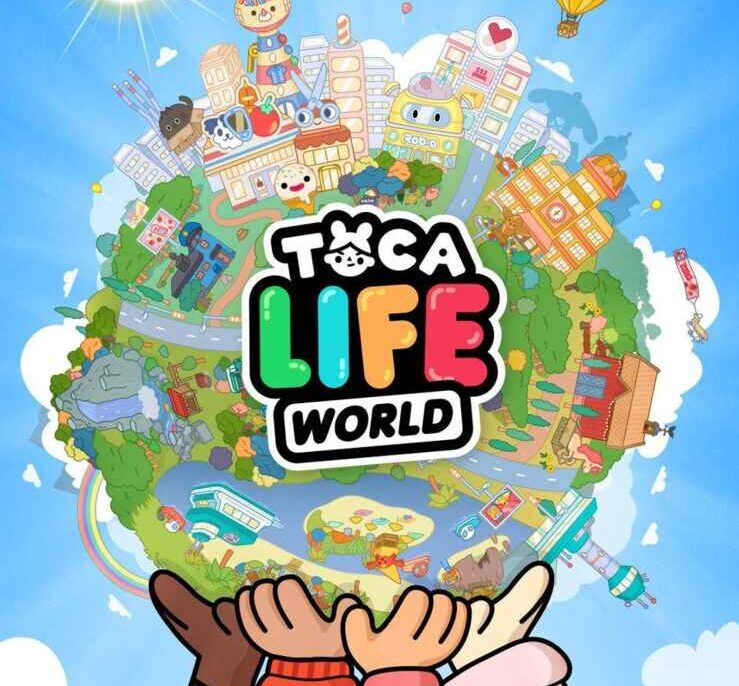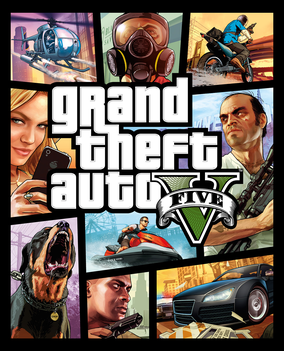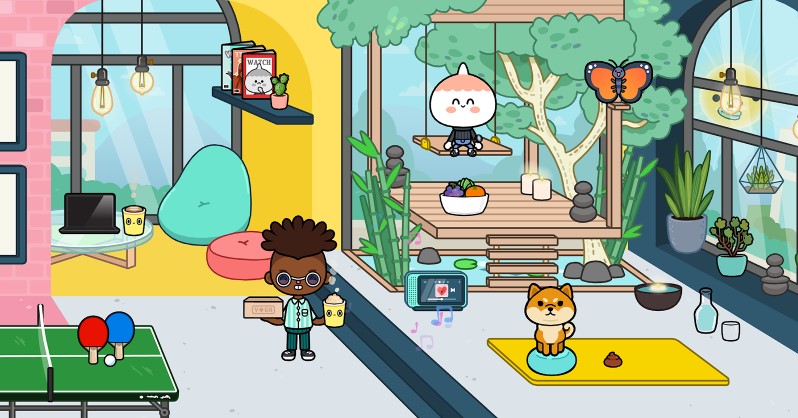
Introduction
Toca Boca has long been celebrated as a leading name in children's digital entertainment. With colorful visuals, safe exploration, and imaginative worlds, it has won the trust of millions of parents globally. However, in 2025, a new concern has taken center stage: growing questions about data privacy and in-app purchase mechanisms within Toca Boca’s most popular games, especially Toca Life World. This article will dissect the controversy in detail, exploring how the issue emerged, its consequences, and what it reveals about modern digital childhoods.
1. The Evolution of Toca Boca’s Monetization Strategy
Toca Boca started as a paid app platform, with standalone games like Toca Kitchen and Toca Hair Salon. However, by 2020, the studio shifted toward a freemium model, particularly through Toca Life World. While the base game was free, content expansions and cosmetic items required in-app purchases.
In 2025, this model matured into a complex in-game marketplace. Players—primarily children—could explore a massive world of purchasable buildings, characters, clothing packs, and seasonal events. While this increased engagement, it also significantly blurred the line between play and consumer behavior, especially for younger users.
2. The Rise of In-App Purchase Pressure in Toca Life World
What began as optional purchases gradually became perceived necessities. In Toca Life World, players are given a limited set of locations and items for free. However, many missions, social scenes, and role-play scenarios become significantly richer and more engaging when additional content is unlocked.
By 2025, many parents reported that their children felt "left out" or frustrated unless they spent real money. Unlike competitive games that pressure with rewards, Toca Boca applied subtle psychological nudges—social comparison, vibrant item displays, and "limited-time" packs—to drive spending behavior in a game meant for children as young as four.
3. Parental Frustration and the Hidden Costs of 'Free'
A significant parental backlash emerged in early 2025. Forums such as Reddit’s r/Parenting and Common Sense Media were filled with reviews warning new users of the hidden costs.
Parents began sharing screenshots showing how a “free game” quickly turned into a $50+ experience if children wanted access to the full virtual town. Despite having a one-time unlock bundle, many of Toca Boca's offerings were priced in a way that encouraged ongoing spending—seasonal items, holiday updates, and exclusive clothes could not be acquired without additional purchases.
Some parents also reported difficulty in disabling purchases or understanding what their children were buying. Since many kids navigated the app intuitively, they often clicked through store pop-ups or confused purchases with gameplay progression.
4. Data Privacy Concerns: What Is Being Collected?
More concerning than monetization is the question of data privacy. In 2025, a report by a Swedish digital rights organization revealed that Toca Boca, while not directly violating any law, did gather user behavior data including:
-
Time spent in each part of the game
-
Interactions with virtual ads and store icons
-
Session frequency and item preferences
Though anonymized, this data was often used to optimize sales tactics, tailoring promotions to player behavior. For example, if a child frequently visited a certain locked location, the app might prompt a targeted pop-up to unlock that specific zone.
The issue raised ethical questions: is it acceptable for children’s apps to use behavioral data to increase purchases—even if that data isn’t personally identifiable?
5. Regulatory Scrutiny and Global Response
Following the digital rights report, regulators in the EU, particularly in Sweden and Germany, began evaluating whether Toca Boca violated the EU’s GDPR-K—a regulation designed to protect children under 13 from behavioral tracking without clear, age-appropriate consent.
In the U.S., the Federal Trade Commission (FTC) took note but had not formally investigated Toca Boca as of June 2025. Nonetheless, lawmakers began pressuring app stores like Google Play and Apple App Store to place stricter labels on children's apps with extensive monetization.
Several child advocacy groups called for the app to be updated with clearer purchasing limits, educational prompts for parents, and a switch to “safe mode” options that disable all in-app purchases.
6. Community Reactions: Divided Loyalties
Toca Boca’s fanbase was deeply split. Some parents defended the company, arguing that all games must monetize and that Toca Boca’s content still remained safer and more educational than most alternatives. Others felt betrayed, claiming the company’s mission of “playful creativity without pressure” was being compromised for revenue.
Meanwhile, older children and tweens on TikTok and YouTube continued to produce massive amounts of Toca Life World content—some even showing how to "hack" items or exploit glitches, revealing the depth of children's desire to access content, even through unauthorized methods.
7. Developer Response and PR Strategy

Toca Boca issued a formal statement in April 2025. They reaffirmed their commitment to safe, creative, and open play for all children. However, they acknowledged that they would begin reviewing their in-app purchase systems and promised to release a “Play Fair Toolkit” for parents by Q4 2025.
The toolkit would include:
-
Parental dashboards to monitor app usage
-
One-time unlock options to replace recurring purchases
-
Clearer age-based content locks
Despite this, many critics noted that the announcement lacked specifics on data usage or plans to reduce behavioral tracking, the core of the controversy.
8. The Impact on the EdTech and Kid Game Market
The controversy around Toca Boca in 2025 sparked industry-wide reflection. Other developers of children’s apps—like Dr. Panda, Sago Mini, and PBS Kids—faced similar scrutiny. Some responded by rolling out ad-free, subscription-based models that included full content access for a flat monthly fee.
Educational technologists began calling for a universal “Child App Seal” that would mark products free from exploitative design or monetization. The Toca Boca issue showed that even companies with good reputations can shift toward harmful models if there’s little oversight.
9. Ethical Design in Games for Children
The debate ultimately returns to the question: what does ethical design mean in kids’ games? Experts argue that the key principles should include:
Toca Boca's blend of high-quality design and subtle pressure tactics illustrates the complexity of designing for young minds in a commercial ecosystem.
10. The Future of Toca Boca and What Needs to Change
Looking ahead, the pressure is now on Toca Boca to set a new standard. As a respected leader in children's digital play, the company has the opportunity—and the responsibility—to build systems that prioritize trust over profit.
Some suggestions from experts include:
-
Building an “education mode” that disables store access entirely
-
Creating downloadable, offline-only versions
-
Publishing transparent reports on data usage and updates
By mid-2026, the community will be watching closely to see if Toca Boca can rebuild the goodwill that made it such a trusted name in the first place.
Conclusion

Toca Boca remains a beloved brand among children and parents alike, but its 2025 controversies have exposed critical flaws in how even the most well-intentioned apps can drift into ethically grey zones. The issues of behavioral tracking, psychological nudging, and in-app purchase dependency in Toca Life World represent a broader challenge for all children's digital products. Moving forward, accountability, transparency, and ethical responsibility must be at the center of app design—especially for the youngest users.






 Clash Royale
Discover Clash Royale’s epic strategy battles. Learn tips, features, and how to Download safely on Android & iOS.
Read full review
Clash Royale
Discover Clash Royale’s epic strategy battles. Learn tips, features, and how to Download safely on Android & iOS.
Read full review
 VR Chat
VR Chat in 2025 is a thriving social metaverse blending identity, creativity, and tech, shaped by user innovation and evolving digital culture.
Read full review
VR Chat
VR Chat in 2025 is a thriving social metaverse blending identity, creativity, and tech, shaped by user innovation and evolving digital culture.
Read full review
 Free Fire
How to get Free Fire
This page contains links to the official sources of the app Free Fire. So that you do not have problems with getting the app, we have prepared a detailed instruction.
How to get Free Fire from the official store.
To quickly and painlessly get the Free Fire app on the Official Store, you should use the following instructions.
Go to the Get for PC button.
If you use a browser on a PC or mobile device, you’ll go to the Free Fire app page on the official store website.
To get the app through the browser, you need to log in to your account in the store and add it to the library.
Read full review
Free Fire
How to get Free Fire
This page contains links to the official sources of the app Free Fire. So that you do not have problems with getting the app, we have prepared a detailed instruction.
How to get Free Fire from the official store.
To quickly and painlessly get the Free Fire app on the Official Store, you should use the following instructions.
Go to the Get for PC button.
If you use a browser on a PC or mobile device, you’ll go to the Free Fire app page on the official store website.
To get the app through the browser, you need to log in to your account in the store and add it to the library.
Read full review
 Stumble Guys
Stumble Guys offers addictive, chaotic fun with vibrant visuals and simple mechanics. It’s a hit in the party game genre, with a bright future ahead.
Read full review
Stumble Guys
Stumble Guys offers addictive, chaotic fun with vibrant visuals and simple mechanics. It’s a hit in the party game genre, with a bright future ahead.
Read full review
 Call of Duty
The latest Call of Duty game introduces major innovations in gameplay, graphics, and features. While it faces some criticisms, it delivers a compelling experience that continues to influence the genre.
Read full review
Call of Duty
The latest Call of Duty game introduces major innovations in gameplay, graphics, and features. While it faces some criticisms, it delivers a compelling experience that continues to influence the genre.
Read full review
 Valorant
Valorant has established itself as a premier tactical FPS, combining precise gunplay, strategic depth, and a vibrant competitive scene. While the game faces challenges such
Read full review
Valorant
Valorant has established itself as a premier tactical FPS, combining precise gunplay, strategic depth, and a vibrant competitive scene. While the game faces challenges such
Read full review